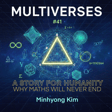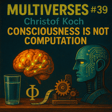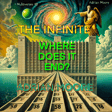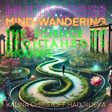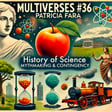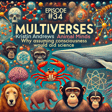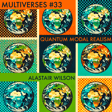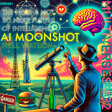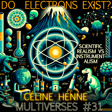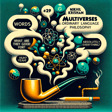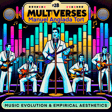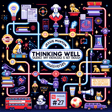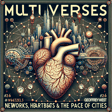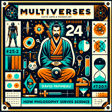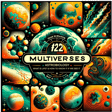
15 | Simon Critchley — Philosophical itches & how to scratch
From what human need does philosophy emerge? And where can it lead us?
Simon Critchley is Hans Jonas professor of Philosophy at the New School in New York, and a scholar of Heidegger, Pessoa, Football (Liverpool FC), and humour — among other things. He crosses over between analytic and continental traditions and freely draws on quotes from Hume, poetry and British pop bands.
Simon argues that philosophy begins in disappointment, not wonder. But its goals can be wisdom, knowledge, enlightenment, and freedom. It can play many roles: as a tool for developing scientific theories, for exposing ideology for tracing the underpinnings of language and experience. Anywhere where other fields fear to tread, that's where philosophers step in.
Show notes and links to books at Multiverses.xyz
(00:00) Intro
(3:00) Beginning of conversation: disappointment as the start of the journey
(7:55) Punk & Philosophy
(11:20) Trauma and tabula rasa
(12:30) Not making it in a band, becoming a philosopher
(19:30) Wittgenstein as a bridge between analytic and continental philosophy
(21:50) Mill and the origin of the label “continental philosophy”
(24:30) Philosophy has a duty to be part of culture
(28:00) The difficulty with philosophy being an academic tradition
(29:30) The Stone
(32:30) Football as a phenomenon for study that invites people in to philosophy
(35:00) Philosophy as pre-theoretic & Pessoa’s Ultimatum
(39:00) Will analytic philosophy run out for road and be subsumed into science?
(41:00) Two lines of human imagination
(42:00) Should philosophy ever be a single honours subject, or should it always aid other realms of thought?
(43:00) Philosophy as pre-science
(44:30) Phenomenology as reflection on the lived world
(47:00) Alberto Caeiro (Pessoa) and anti-poetry
(48:50) The saying of ordinary things to fascinate angels
(54:00) Impossible objects will keep philosophers busy
(57:00) The task of philosophy as deflationary, as not making progress
(1:00:00) Should philosophy of physics be part of physics?
(1:04:30) Context: What can’t I read Descartes like I’m talking to your right now?
(1:06:00) Is context colour or is it inseparable from ideas?
(1:15:30) Rorty: Continental philosophy as proper names vs problems in analytic philsophy
(1:19:20) Trying to walk the line between two traditions of philosophy
(1:20:00) Obscurantism vs scientism
(1:23:00) Permission to think on their own, to expose ideology
(1:26:00) The internet has been good for philosophy
(1:26:30) Audio as a new platform or agora for philosophy
